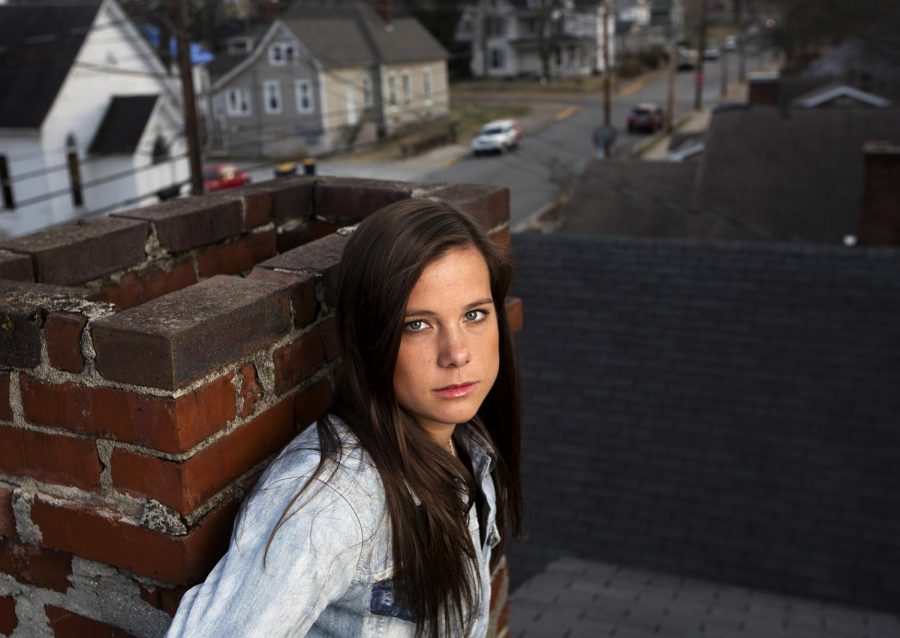In My Skin: Students from different countries adapt to WKU
March 27, 2014
In My Skin is a weekly feature series that looks to tell the stories of diverse student populations at WKU. Its goal is to serve as a simple reminder that WKU is location of diversity.
*****
Junior Llewellyn Little lives by the saying, “Do not confine yourself to a corner of a map. The whole world is your native land.”
Little practiced what he preached, traveling hundreds of miles from his home in Melbourne, Australia in order to swim and study on the Hill.
Coming to WKU for college was not that difficult of a transition for Little because he was used to moving around to different places. He lived in Hong Kong for three years while it was still a British colony and also traveled to many places for swimming.
“I’ve had that experience before of being the only one,” Little said. “Here, it was a lot easier. Surprising as it may sound to some people, we do speak the same language, Australians and Americans.”
Like Little, senior Carolina Barboza from Uruguay and sophomore Aliaksei Taranda from Belarus said they were used to being out of their native countries before coming to study at WKU, which helped to make the transition easier.
“I’m used to adapting,” Barboza said.
Little said that he was surprised at the number of churches here and he also had to get used to American slang and driving on the right side of the road.
While Americans and Australians speak the same language, colloquial differences did lead Little to a few memorable misunderstandings.
Little told a story of how his friend was talking about “spitting game” with a girl he had met.
“I’m like I’m not spitting on anybody. I don’t want to do that,” he said.
Little also had to learn the difference between American’s and Australian’s definitions of the words “thong” and “rubber.”
Little has been able to laugh at communication mishaps and has made American friends. Within a week of beginning classes at WKU, he said that he had three places to go for Thanksgiving.
“I’ve made some great friends here,” he said. “I’m fortunate from being a country that everybody around here likes.”
While Americans were very helpful in his transition here, Little said that he does sometimes miss his friends and family back home.
“I miss a lot of my good mates there,” he said. “I know this is going to sound really hippy, but I miss the atmosphere there.”
As with many American college students, Little said that he also misses his mom’s cooking.
“Lamb, lamb, lamb. You guys don’t know how to do lamb here,” he said. “Everything’s more chicken.”
Barboza, Little, and Taranda are all close with the other international students at WKU. Like them, many of the international students are members of an athletic team and understand the challenges of living outside of their native country.
“The foreigners, I won’t lie, are probably my closest friends here because you have that similar bond of being the only ones and sticking together,” Little said.
Barboza also said that she experienced the same feelings of closeness with the other international students.
“It’s like we are all on the same page,” Barboza said. “We understand what we feel being so far from home.”
These students face the typically ups and downs of most college students, yet they do so thousands of miles away from their friends and family.
Taranda said the separation from his family in Belarus has been more difficult the second year because everything is not as new and exciting as it was the first year.
“If I had a ticket, I would probably fly back home right now,” Taranda said.
Despite a nine-hour time difference, Taranda said he talks to his family every day before his classes thanks to the technology of Skype.
Unlike Taranda, Barboza said the transition of coming to the United States was harder at the beginning because she was not very fluent in English.
Along with speaking English, Barboza, who is an only child, said that one of the greatest challenges of coming to college was learning to live on her own.
“I had to grow up really fast” she said. “I have had to be very independent.”
Little said he does not know what he would have done if he was not on an athletic team at WKU. Barboza and Taranda said they have experienced a strong bond due to being on the tennis team.
“Basically my team is everything me here. They are like my family,” she said.
Thousands of miles away from their countries, Little, Barboza, and Taranda have made a home at WKU with their sports teams and friends.




















![Megan Inman of Tennessee cries after embracing Drag performer and transgender advocate Jasmine St. James at the 9th Annual WKU Housing and Residence Life Drag Show at Knicely Conference Center on April 4, 2024. “[The community] was so warm and welcoming when I came out, if it wasn’t for the queens I wouldn’t be here,” Inman said.](https://wkuherald.com/wp-content/uploads/2024/04/smith_von_drag_3-600x419.jpg)


